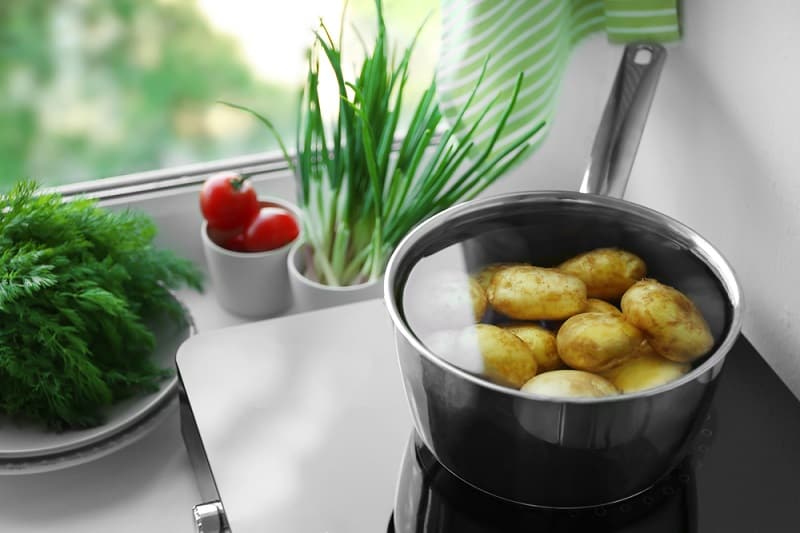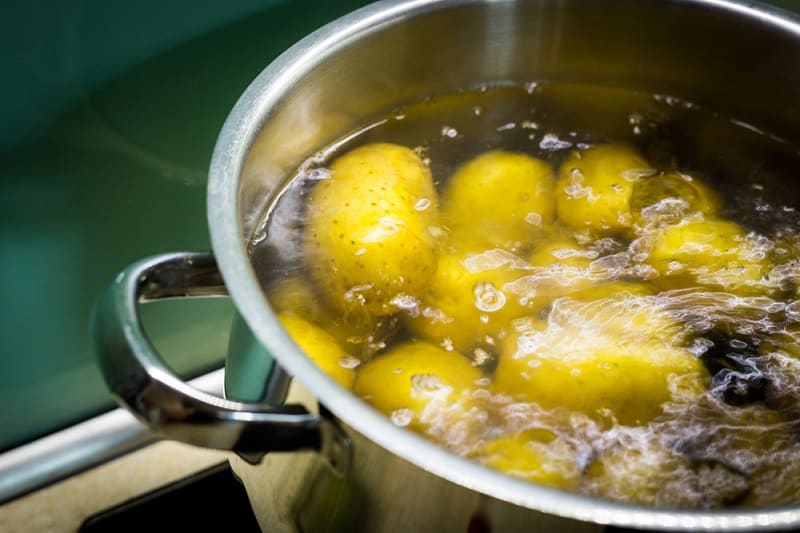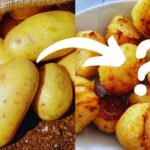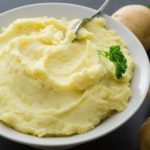Oh, the humble potato! It may not look like much at first glance, but with the proper cooking technique, the classic spud can be transformed into an amazing dish.
Whether it is served as a main or a side, there is sure to be a type of potato out there that suits everyone’s taste.
The ways in which a potato can be cooked are vast and varied, so it can be hard to master every technique. Perhaps the easiest way of cooking potatoes, though, is by boiling them.
Boiling is also the first step for many other potato recipes, including mashed potatoes, potato salad, and crispy roasts.
The problem is that you cannot tell by sight alone when a boiled potato is fully cooked. But fear not – there is a quick and easy way to test your potatoes and check that they are perfectly cooked!
Read on to learn when potatoes are done boiling, what happens if you boil your potatoes for too long, and some tips for boiling the perfect potato every time.
How to Test for Perfectly Boiled Potatoes
A simple stab test is the best way to check if your potatoes are done boiling. Use a pair of tongs to remove a potato from the boiling water, and then prick it with a knife, fork, or skewer. If the utensil goes through the potato with ease, it is fully cooked.
Large chunks of potato typically take between 15 and 20 minutes to boil. Therefore, we recommend testing your potatoes regularly after the 12-minute mark to ensure they do not become overboiled.
If you have cubed your potatoes instead, try checking them after 5 minutes, as they will usually only require 10 minutes to cook.
When parboiling potatoes ready for roasting, you don’t want them to become cooked all the way through. If boiling potatoes for this purpose, you can use the same stab test as before, but this time you want to feel a slight resistance when sliding the utensil into the centre of the potato. In most cases and depending on their size, this will occur after 8-10 minutes of boiling.
Can You Boil Potatoes for Too Long?
When potatoes are left to boil for a prolonged period of time, they will become overcooked. This causes the potatoes to break apart in the boiling water and become water-soaked, meaning they will not be suitable for use in many dishes.
Some people purposely overboil their potatoes when making mash to make it easier to remove any lumps from the mixture. However, we advise against this as your mashed potatoes will come out watery instead of fluffy and creamy. The best mashed potatoes need perfectly boiled spuds and a bit of elbow grease!
To ensure you get good results for all your potato dishes, it is always best to periodically test your spuds using the stab test method above instead.

Top Tips for Boiling Potatoes
Boiling may be one of the simplest ways of cooking potatoes, but ensuring that every potato in the pan comes out perfectly each time can be tricky.
If you often find your potatoes come out subpar, then try out some of our handy tips below:
- Simmer your potatoes: Rather than leaving your water at a rolling boil the whole time, let your water come to a boil and then reduce it to a simmer. Your potatoes will take slightly longer to cook, but it will give them a softer texture and help them cook evenly.
- Add salt: Adding salt to your pan will increase the boiling point of the water, meaning the water will reach a higher temperature. This will cook the starch in the potatoes more thoroughly, therefore making the potatoes softer. As an added bonus, it will also lightly season your spuds.
- Cut into similar-sized pieces: Cut your potatoes into evenly sized pieces before boiling them whenever possible. Smaller chunks of potato will cook faster and more evenly, plus all of your potatoes are more likely to boil at the same rate. This stops some pieces from being cooked long before others.
- Add your potatoes to cold water before boiling: Always place your potatoes in a pan with cold water and let it come to a boil, rather than adding them to an already boiled pan of hot water. This prevents the outer layer of your potatoes from becoming overcooked while the inside is still raw, helping to ensure even cooking.

Hannah is a freelance content writer and self-proclaimed foodie. When Hannah isn’t sitting tapping at her laptop, you’ll probably find her in the kitchen. As an ex-chalet host, she’s used to cooking four-course meals for 10+ people and loves feeding friends and family whenever possible.




